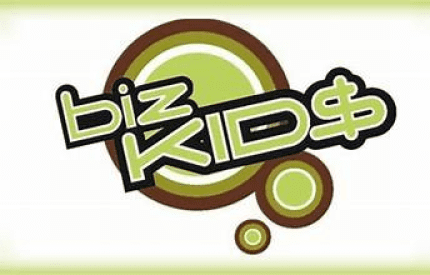Entrepreneurs
So what’s an entrepreneur? The word comes from two French words meaning to start and to take on, which is what people do when they start a business. Basically, an entrepreneur sees an opportunity and acts on it. Opportunity is everywhere! Look for it. It might be right in front of you!
Table of Content
How Can I Be An Entrepreneur?
Summer is just around the corner. If you don’t have a summer job lined up, why not become an entrepreneur and start your own business? Anyone can start a business. All you need is an idea and a plan of action. You’ll need to be prepared to do some hard work, but the rewards can be big!
Steps: The first step to starting a business is to answer these questions:
- 1. Product or a Service: What are you selling? 5. Start-up money: Some businesses need money to
- 1. Customers: Who are your customers, and where will get started. How else will you pay for your expenses?
- 2. you find them? Have you saved money that you can put toward your business? Can you borrow from your parents or a relative?
- 2. Price: How much will you charge? This will be your income. If you already have the resources you need to start your company, you won’t need to find money to begin.
- 3. Resources: What do you need to get started? Any equipment? Your parents’ kitchen? 6. Promotion: How will you let your customers know about Paper supplies? A computer? Identify what you need, your business? People need to know your business exists its cost, and how to get it for the lowest possible price before they can buy your products! (or consider borrowing it). The total cost of all of these resources equals your expenses.
Write the answers to these questions down on paper, and you’ll have your very own business plan. That’s the first step to starting a business. To develop a more in-depth plan, check out this template:
https://bizkids.com/pdfs/PlanningMyBusiness.pdf
Ideas: What kind of businesses are good for kids to start?
Here are some ideas:
Products Services
- Cook up some baked goods or healthy snacks. • Walk and care for the pets in your neighborhood.
- Create personalized school supplies, such as• Organize and clean out your neighbors’ garages. illustrating original notebook cover designs. • Start your own car-washing service.
- Craft your own soap or beauty products. • Set up a sports camp for young children.
- Design a line of jewelry, hairclips, or painted headbands. • Repair what you know, whether it’s bicycles, skateboards,
- Develop your own greeting cards or picture frames. or computers.
- Sew or knit articles of clothing. • Care for customers’ lawns or raise fresh produce.
Money: Do you know how to calculate profit?
Before you start a business, you’ll want to see if all your hard work will earn you a profit. This is how do you do that . . .
First, you need to consider two elements—your income and your expenses.
Income = All the money that you earn through your business
Expenses = What you spend to make your business run.
How can you figure out these amounts before starting your business?
Estimated Monthly Income:
Estimate the number of customers you think you will have, based on the number of people you’ve told about your business. Once you’ve figured this out, multiply your number of customers by the price you’ll charge for your service or product.
Estimated Monthly Expenses:
Add up all of the things you’ll need to pay for over the course of a month.
Once you’ve figured out your estimated monthly income and expenses, you can figure out your profit. Profit is the income you earn once all your expenses are paid.
Will Your New Business Make a Profit?
Estimated Profit:
Subtract your estimated monthly expenses from your estimated monthly income, and if it’s a positive number, you have a profit! If it’s not, you may need to charge more or find more customers to help you increase your income.
Here’s how Jenny determined whether or not her company, Jenny’s Homemade Jams, made a profit this month:
Income:
Jenny sold 24 jars of jam this month for $3.00 each. Jenny’s recipe makes exactly 24 jars of jam, so Jenny had no troublefiguring out her expenses.
Price: $3.00 Number of jars sold: x 24 jars of jam Total Income: $72.00
Expenses: Stove and cooking equipment: free Jars and lids: $9.00 Fruit: $6.00 Sugar: $2.00 Labels: + $1.00 Total Expenses: $18.00
$72.00 income – $18.00 expense = $54.00 Profit
Jenny invested some of that money back into her company, and kept the rest for herself!
Factoid
If you can keep your expenses low and your income high, you could end up making a lot of money!
Facebook, an online social networking website, was started in a college dorm at Harvard University. The founder, Mark Zuckerberg, started the site in his spare time and his only initial costs were his computer (which he already had), Internet access, and a website hosting fee. Now, at age 24 and still CEO of Facebook, Zuckerberg was named in 2008 by Forbes magazine as “the world’s youngest self-made billionaire.”
Not bad for starting a business in his spare time!
Real BizKid Don’t Fret Issaquah, Washington
Nick Ravagni, 19, is a consummate entrepreneur and musician. At age 8, he filed for a patent for the Don’t Fret Note Map—a new method for helping people learn how to play guitar. Since then, Nick has started two more companies—Fretless Finger Guides and Computer Works Northwest. Check out his websites:
http://www.dontfret.com/ http://www.fretlessfingerguides.com/ http://www.computerworksnorthwest.com/

